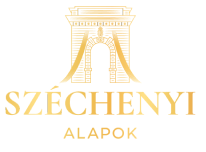
The 30th Bálványos Summer University and Student Camp has concluded. At the event, organized in Tusnádfürdő, Széchenyi Venture Capital Fund Management contributed to answering a series of questions about the economy of the Carpathian Basin. We are presenting the Hungary-related professional topics that the lecturers explored in Tusványos!
Between generations
One of the main topics of Tusványos, which provided over 400 programmes, was the subject of generational shift and management succession. Projects providing non-refundable backing and skill development opportunities for launching a new venture (thus giving a chance to gain new international opportunities and relationships) are becoming more and more popular amongst young entrepreneurs. However, approximately 58 percent of small and medium sized enterprises active in Hungary are family-owned or controlled, 40 percent of which have owners older than 65. Awareness and forward thinking are particularly important in the cases of these companies, because handing over ownership is a challenge many companies do not survive.
The secret to efficient generational shift is the conversion of the diverse knowledge, experience and connections collected by the founder, the tool for which a customer relationship management system, for example, could be useful.
As part of the topic, the dilemma of digitalization was also examined. While the problems of generational shift and digitalization embody different difficulties for many SMEs, it is worthwhile, even advantageous, to look simultaneously into both. Industry 4.0 is a great example: by utilising up-to-date technology and structure, it boosts the market potential for SMEs, which may in turn lead to enhanced company value and enterprise competitiveness, and the possible implementation of new ideas. In the end, the model also serve as an instrument to ease the process of company succession.
József Török, director of business development at startup investments represented Széchenyi Capital Fund Management Ltd. at the thematic round table organized in the MIT Tent.
[post_newsletter title=”Iratkozzon fel hírlevelünkre!”][/post_newsletter]
Reinventing agriculture?
Agriculture does not merely depend on the ecological capabilities of a country, its competitiveness and capacity also rely on the technology used in the industry. Companies – with advanced technology, adequate materials used in the industry, and properly utilized funds – are able to execute production and processing on a more efficient and competitive level. One should not forget other, agriculture-related social needs, like health-conscious nourishment and GMO-free food production, since all of these have a major influence on the preparation and process of production.
Similarly to other industries (like in the processing industry), Hungarian agriculture is witnessing an increasing automation process which follows European trends. While the domestic agriculture is considered an underdeveloped sector, the continuous progress in technology points to precision agriculture within the industry. It covers – in the various phases of production – the abilitiy of vehicles to communicate, technical and other services, and the structure and design of machinery. For example, by applying autonomous vehicles and robots, company leaders can not only replace workforce, but enable productive work and cost efficiency: it is not a coincidence that the number of precision machines is constantly increasing.
The Hungarian agriculture has a relatively small market, which is why there are no capital funds specific to the industry. However, there is a large potential for innovation in the domestic agriculture. The Hungarian Chamber of Agriculture (HCA) and Design Terminal have recently announced a collaboration for the development of the sector and newly launched agrarian start-up businesses. Zsolt Kovács, deputy director of supply at HCA, Olivér Sziller, manager of MyConcept, and Gergely Nagy-Böszörményi, leader of Design Terminal explored the potential ways to reform the agricultural industry via a round table conversation.
